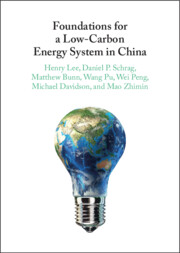Refine search
Actions for selected content:
23 results
The potential of shells from Mytilus edulis for retrospective analysis of marine 14C discharges from nuclear power plants
-
- Journal:
- Radiocarbon , First View
- Published online by Cambridge University Press:
- 16 October 2025, pp. 1-16
-
- Article
-
- You have access
- Open access
- HTML
- Export citation
Drawing A Line Between Peaceful and Military Uses of Nuclear Power: The Japanese Press, 1945–1955
-
- Journal:
- Asia-Pacific Journal / Volume 10 / Issue 37 / September 2012
- Published online by Cambridge University Press:
- 07 May 2025, e2
-
- Article
-
- You have access
- Open access
- Export citation
Nuclear Nationalism and Fukushima
-
- Journal:
- Asia-Pacific Journal / Volume 10 / Issue 11 / March 2012
- Published online by Cambridge University Press:
- 07 May 2025, e2
-
- Article
-
- You have access
- Open access
- Export citation
Fukushima, Hiroshima, Nagasaki, Maralinga
-
- Journal:
- Asia-Pacific Journal / Volume 13 / Issue 7 / February 2015
- Published online by Cambridge University Press:
- 14 March 2025, e5
-
- Article
-
- You have access
- Open access
- Export citation
What March 11 Means to Me: Nuclear Power and the Sacrificial System
-
- Journal:
- Asia-Pacific Journal / Volume 12 / Issue 19 / May 2014
- Published online by Cambridge University Press:
- 14 March 2025, e1
-
- Article
-
- You have access
- Open access
- Export citation
Greening of China's Electric Power System: 2021 Update
-
- Journal:
- Asia-Pacific Journal / Volume 20 / Issue 18 / October 2022
- Published online by Cambridge University Press:
- 14 March 2025, e2
-
- Article
-
- You have access
- Open access
- Export citation
Nuclearization on the Iberian Peninsula: A Tale of Two Countries (c. 1947–1988)
-
- Journal:
- Enterprise & Society / Volume 26 / Issue 3 / September 2025
- Published online by Cambridge University Press:
- 25 November 2024, pp. 938-962
- Print publication:
- September 2025
-
- Article
- Export citation
6 - Finland
- from Part II - Empirical Case Studies
-
- Book:
- Security in Sustainable Energy Transitions
- Published online:
- 23 November 2024
- Print publication:
- 21 November 2024, pp 94-118
-
- Chapter
-
- You have access
- Open access
- HTML
- Export citation
1 - Introduction
-
- Book:
- Security in Sustainable Energy Transitions
- Published online:
- 23 November 2024
- Print publication:
- 21 November 2024, pp 1-14
-
- Chapter
-
- You have access
- Open access
- HTML
- Export citation
6 - Dwight Eisenhower’s America
-
- Book:
- How Government Built America
- Published online:
- 08 May 2024
- Print publication:
- 09 May 2024, pp 66-78
-
- Chapter
- Export citation
1 - The Development of Pretoria’s Nuclear Industry and Relations with the IAEA, 1950–1977
-
- Book:
- Disarming Apartheid
- Published online:
- 28 March 2024
- Print publication:
- 28 March 2024, pp 16-39
-
- Chapter
- Export citation
Suit Up: A Systematic Review of the Personal Protective Equipment (PPE) Recommended and Utilized by Various Classes of Responders to Nuclear Radiological Disasters at Nuclear Power Plants
-
- Journal:
- Prehospital and Disaster Medicine / Volume 39 / Issue 1 / February 2024
- Published online by Cambridge University Press:
- 15 January 2024, pp. 85-93
- Print publication:
- February 2024
-
- Article
-
- You have access
- Open access
- HTML
- Export citation
Radiation-Damage Resistance in Phyllosilicate Minerals from First Principles and Implications for Radiocesium and Strontium Retention in Soils
-
- Journal:
- Clays and Clay Minerals / Volume 64 / Issue 2 / April 2016
- Published online by Cambridge University Press:
- 01 January 2024, pp. 108-114
-
- Article
- Export citation
THE ROLE OF BATTERIES AND FUEL CELLS IN DECARBONISING THE UK ECONOMY
-
- Journal:
- National Institute Economic Review / Volume 266 / Winter 2023
- Published online by Cambridge University Press:
- 12 September 2024, pp. 55-63
- Print publication:
- Winter 2023
-
- Article
-
- You have access
- Open access
- HTML
- Export citation
9 - Nuclear Power
-
- Book:
- Gas and Steam Turbine Power Plants
- Published online:
- 12 January 2024
- Print publication:
- 19 October 2023, pp 289-328
-
- Chapter
- Export citation
Dreams of atomic genocide: The bomb, racial violence, and fantasies of annihilation
-
- Journal:
- Review of International Studies / Volume 49 / Issue 4 / October 2023
- Published online by Cambridge University Press:
- 20 July 2023, pp. 557-566
- Print publication:
- October 2023
-
- Article
- Export citation
8 - What Doesn’t Work
-
- Book:
- No Miracles Needed
- Published online:
- 02 February 2023
- Print publication:
- 02 February 2023, pp 129-191
-
- Chapter
- Export citation

Foundations for a Low-Carbon Energy System in China
-
- Published online:
- 02 December 2021
- Print publication:
- 09 December 2021
Nuclear Power as Cultural Heritage in Russia
-
- Journal:
- Slavic Review / Volume 80 / Issue 4 / Winter 2021
- Published online by Cambridge University Press:
- 16 March 2022, pp. 839-862
- Print publication:
- Winter 2021
-
- Article
-
- You have access
- Open access
- HTML
- Export citation
Epilogue: Nuclear Power at the Crossroads
-
- Book:
- Atomic Junction
- Published online:
- 12 September 2019
- Print publication:
- 19 September 2019, pp 170-176
-
- Chapter
- Export citation
